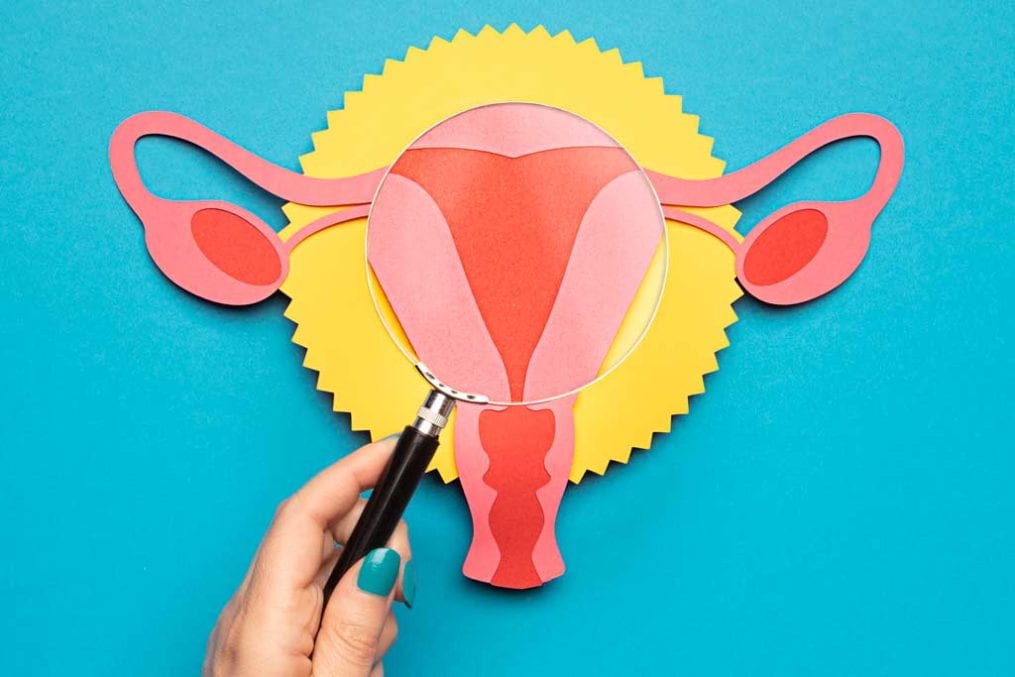6 questions about cervical screenings, answered

Social distancing measures have impacted on lots of important parts of life, not least cervical screenings. Those of us living in the UK who were due a smear test at the start of lockdown were likely informed that our appointment had been cancelled, or delayed, due to social distancing measures. But worryingly, now that appointments are becoming available again, some women are choosing not to attend, due to coronavirus concerns.
New research conducted by charity Jo’s Cervical Cancer Trust found that around one in eight women (12%) were less likely to attend a smear test now than before the pandemic. Those who were hesitant cited fears around safety, worries about putting additional strain on the NHS and wanting to shield, or protect others, as their reasons. But screening is vitally important for identifying abnormal cells and high-risk HPV, which could develop into cervical cancer. For this reason, it’s important that we attend overdue appointments as soon as we’re able to. We put some commonly asked questions to the experts.
1 What does a cervical screening involve?
‘The test involves opening the vagina with a speculum and using a soft brush to remove cervical cells that are naturally shed – there’s no scraping involved,’ says Adeola Olaitan, consultant gynaecological oncologist at University College London Hospital and member of the medical panel at Jo’s Cervical Cancer Trust. ‘The sample is put into a special liquid preservative and checked in the laboratory for abnormal cells and, sometimes, high-risk HPV virus types.’ A screening shouldn’t be painful, but you might find it uncomfortable and – let’s face it – a bit awkward. ‘If you’re worried, tell the person doing the test beforehand, and try deep breathing,’ says Olaitan. ‘Don’t have sexual intercourse or use lubricants for 24 hours beforehand, and, if you are using a vaginal cream for menopause symptoms, don’t apply it on the day of your screening or the two days prior to this.’
2 Will I be safe from coronavirus at my cervical screening?
If they’ve decided they can open for cervical screenings, your GP surgery will be doing everything they can to ensure both staff and patient safety. ‘Although your cervical screening test will be the same, your GP surgery will have safety measures in place to keep you and their staff safe,’ explains Imogen Pinnell, Health Information Manager at Jo’s Cervical Cancer Trust. ‘Your nurse, or doctor, will wear personal protective equipment (PPE) and you may be asked to follow certain instructions, such as waiting outside until it’s time for your appointment, or using a particular door.’
3 Does it matter if I don’t attend my appointment?
Yes, cervical screening is a really important test. ‘It is the best protection against cervical cancer, preventing around 75% of cases from ever beginning,’ says Pinnell. ‘If you have been invited, that is because your GP practice thinks it is safe to attend. It’s always your choice to attend, unless you are self-isolating, and then you should not book an appointment until you have finished isolating. If you are shielding, you will need to think about your individual situation and safety, which you can discuss with your GP practice.’
4 How common is cervical cancer?
‘Although relatively rare, cervical cancer is one of the three most common cancers affecting female gynaecological organs (the other two are ovarian and uterine),’ says Olaitan. ‘However, the success of the cervical screening programme has made occurrences of cervical cancer much less common. Ten women out of every 100,000 are diagnosed with this type of cancer every year – that’s around 3000 of us – and it mainly affects sexually active women aged 25-64. Caught early, survival rates are pretty good, though more than 900 women still die from the disease each year.’
5 Who gets cervical screening?
It’s offered to women aged 25-49 every three years, and those aged 50-64 every five years. ‘Over the age of 65, it’s only for women who haven’t been screened since the age of 50, or those who’ve recently had abnormal smears,’ says Olaitan. ‘However, if you are outside these criteria and are concerned, you can request a screening from your GP. Regular screening saves lives – up to 5000 a year out of the 4 million who attend screening – so it’s important to take it up. It’s worth remembering that screening is not a test for cancer; it detects abnormal cells on the surface of the cervix which, if left untreated, may turn into cancer.’
6 What are the symptoms of cervical cancer?
‘It is important to understand that a screening test is inappropriate if you have symptoms – screening is for women with no symptoms,’ says Olaitan. That said, if you have any of the below symptoms, you should report the symptoms to your GP, who will organise the appropriate tests. If your doctor is concerned that you may have cancer, you will be referred to hospital for further investigation. The symptoms to look out for are:
- bleeding after or during sex
- bleeding in between periods
- unpleasant, smelly vaginal discharge
- bleeding after the menopause.
- unexplained pain in your lower back or between your hip bones (pelvis)
You can find more information on cervical screenings at jostrust.org.uk, or call their free helpline on 0800 802 8000.






